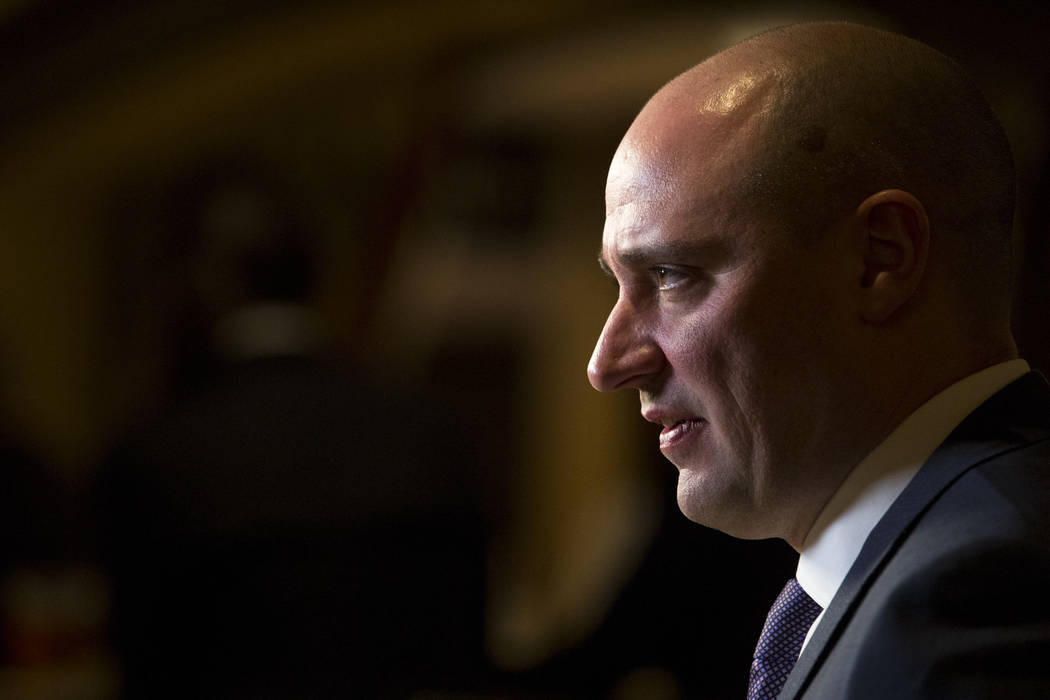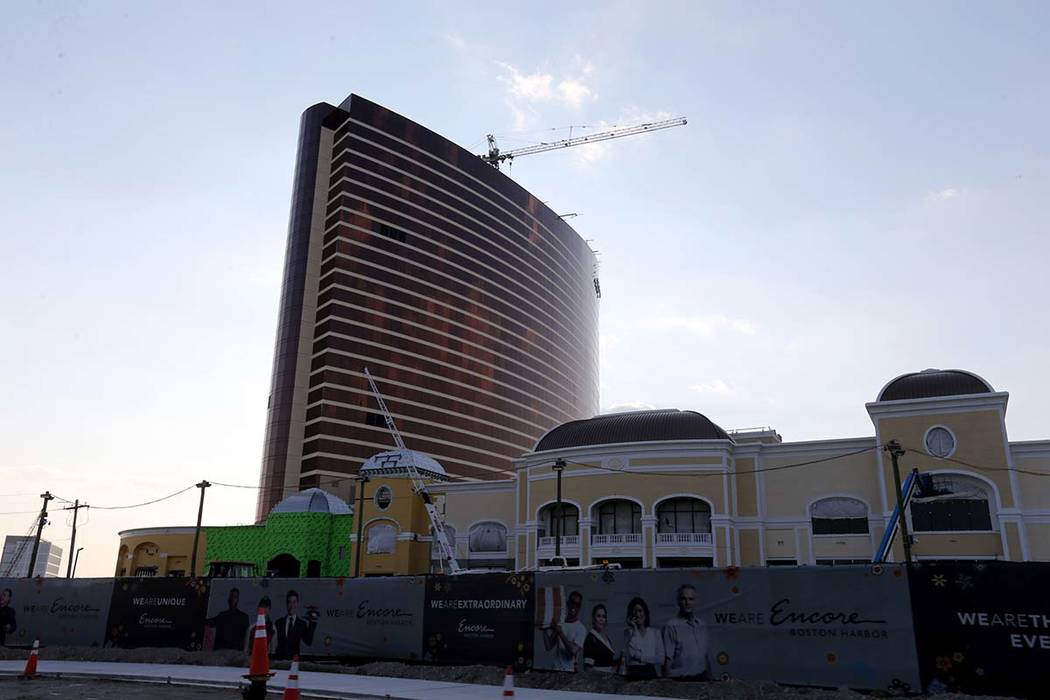Why would Wynn Resorts consider selling Encore Boston Harbor?
Mad Matt.
That’s what one of the newspaper columnists in Boston is calling Wynn Resorts Ltd. CEO Matt Maddox after the puzzling May 17 disclosure from Wynn and MGM Resorts International that they were discussing the possible sale of Encore Boston Harbor — the $2.6 billion resort that will open June 23.
Just as quickly as the two companies sent word that they were in talks came the announcement that the discussions had ended. Both companies went their separate ways with kindly statements about how much they liked their current host communities.
But it gave everybody a chance to speculate why Wynn would even think about bailing out after going through eight years of regulatory hurdling, a massive sexual harassment scandal, a probing investigation, the public humiliation of three days of hearings and a record fine of $35 million by the Massachusetts Gaming Commission.
Columnist Joan Vennochi of the Boston Globe theorized that Maddox was angry at Massachusetts for some of the sanctions specifically leveled at him by the commission. The commission ordered a $500,000 fine against Maddox, that he get leadership coaching, and the appointment of a monitor — chosen by the commission and paid for by Wynn — to review operations at Encore Boston Harbor for three years.
Ultimately, she concluded that the talks were designed to divert attention from the fact that MGM Springfield hasn’t been nearly as successful as what most people had projected and that it was possible Encore Boston Harbor would be disappointing as well.
On the plus side for the companies, a sale would have enabled Wynn to escape from a weaker-than-anticipated market and MGM could take over a brand new building in a market likely to be superior to Springfield’s. There’s a certain amount of logic to that, although one must wonder why the financial analysts couldn’t figure out the economics of the two regions a long time ago.
Everybody knew Massachusetts was going to try to run a tight regulatory ship, that the state would have a tax rate more than three times Nevada’s, that Connecticut has a strong, competitive tribal gaming market within easy driving distance of Massachusetts casinos, and that there was little opportunity to expand with that state’s one company-one casino rule.
Maddox likely isn’t as angry at Massachusetts as he is with his one-time Svengali, former Chairman and CEO Steve Wynn, who got the company into its mess in the first place, regardless of whether he did or didn’t sexually harass employees over decades, as he has been accused (and has denied).
One of the things the on-again-off-again sale talk did was affirm how dramatically different the rules are in Nevada and Massachusetts.
The fact that MGM would have had to get rid of MGM Springfield — a building that restored some of the historic charm of that city’s downtown area — in order to acquire the Boston resort is a big one.
In Nevada, there are few barriers for a single company to own multiple casinos.
The fact that host communities — Springfield for MGM and Everett for Boston Harbor — would have a say in any resort sale was another roadblock that would have existed if Wynn and MGM found a way to make a deal work. Other cities near Encore Boston Harbor — eight, including Everett — would be allowed to weigh in because casino traffic generation could affect streets and roads in those municipalities.
Some of those rules are bound to make any Nevada gaming executive mad.
Contact Richard N. Velotta at rvelotta@reviewjournal.com or 702-477-3893. Follow @RickVelotta on Twitter.



















